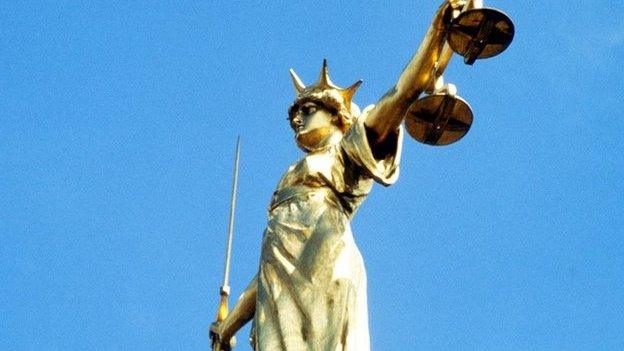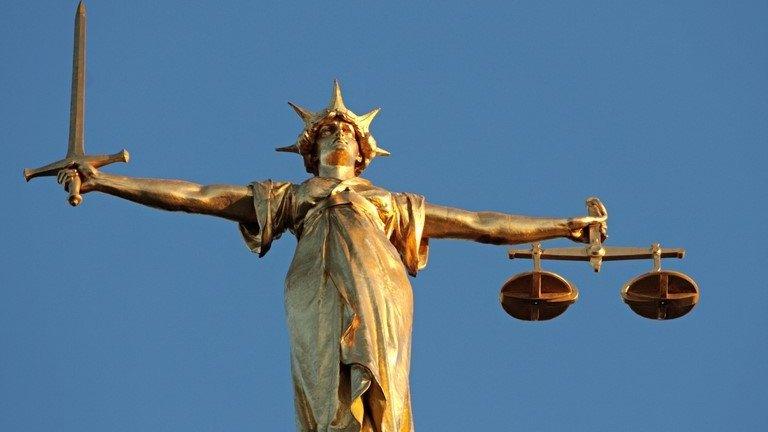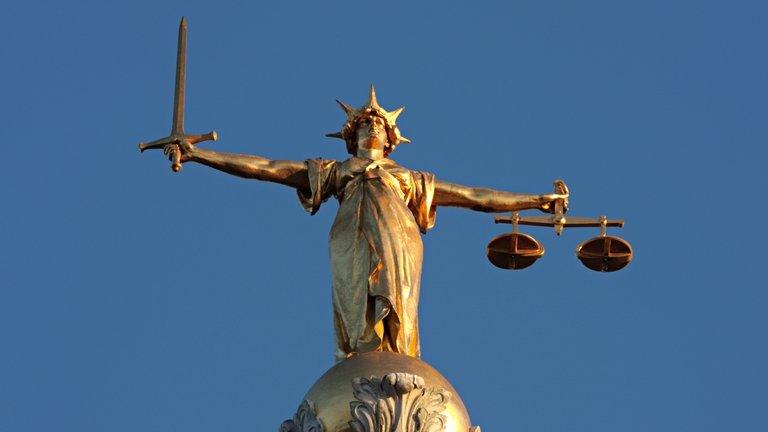Child witness court video evidence expansion planned
- Published

Changes to allow children and abuse victims in England and Wales to film their evidence before a trial begins should be brought in "as fast as possible", a justice minister has said.
The government has been trialling the use of pre-recorded evidence from locations outside court.
Justice minister Mike Penning told MPs he is awaiting final assessment, which he thinks will be successful.
The NSPCC has highlighted the traumatic impact of court appearances.
Mr Penning's comments in the House of Commons came after shadow justice minister Dan Jarvis said video evidence could be recorded in "only a handful" of remote sites, with the vast majority being located in court buildings.
He said: "It's very important they [children] get the support they need to ensure that justice is done and that includes victims being able to give evidence away from a court setting via a video link."
Commenting on the trial of pre-recording evidence, Mr Penning said: "I'm waiting for evidence as to how that plan has worked but I actually would like the roll-out as fast as possible if the evidence comes back as I think it will do."
A spokesperson for the NSPCC said the charity was "delighted" at the minister's commitment, adding: "Being made to go to a court building can be terrifying for a child, who fears seeing or bumping into their alleged attacker."
Cross-examination recall
Changes were first proposed almost 25 years ago and aim to limit the number of cases in which witnesses are subjected to long and uncomfortable questioning.
The six-month pilot scheme began in April at Crown Courts in Leeds, Liverpool and Kingston-upon-Thames, following concerns that some child witnesses have been treated with hostility in sexual abuse trials.
The child witnesses taking part in the pilot gave evidence and were cross-examined in front of a judge, with a recording being taken to be shown to a jury during a subsequent trial.
At present, witnesses can only be cross-examined in court during a trial, although vulnerable people are sometimes allowed give evidence from behind a screen or via video link. The prosecution also sometimes uses a recorded police interview with the victim to reduce the time the person spends in court repeating the same account.
When witnesses do appear, judges can stop overly-aggressive cross-examination, but there are no limits on the duration of questioning - or the number of lawyers who can question a witness or victim.
If successful, the scheme could be extended to cover victims of sexual violence and rape.
The proposed changes will also allow witnesses in need of counselling and other therapy to receive help earlier, the Ministry of Justice said.
The reforms are being implemented by section 28 of the Youth Justice and Criminal Evidence Act. It does, however, stress that a victim or witness may be recalled for further cross-examination if lawyers need to question them about points that were not apparent at the time the recording was made.
- Published28 April 2014

- Published11 June 2013
